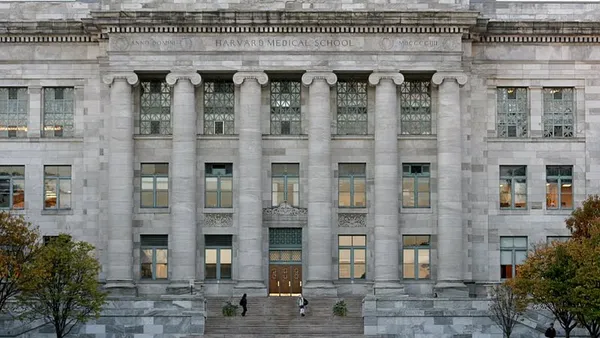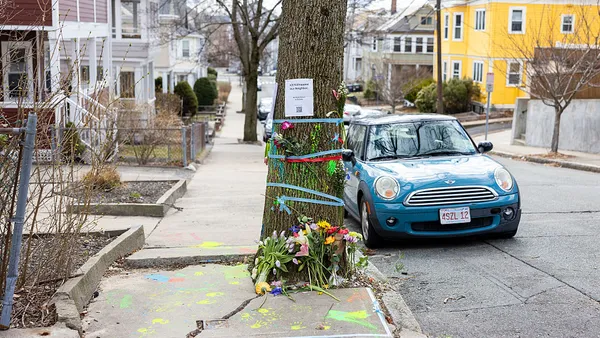Dive Brief:
- Four colleges including The New School and Haverford College filed a lawsuit Tuesday against the Department of Homeland Security and U.S. Citizenship and Immigration Services over an August policy change to nonimmigrant visas that could make it easier to bar international students from the U.S. for periods of three or 10 years if they fall out of status.
- Students previously had 180 days after they received notification of "unlawful presence" to regain their status before they were barred from the U.S. for three years. Under the new policy, they are given 180 days from the time it is determined their status violation began instead of when they are notified before they face penalties, sharply reducing or even eliminating the amount of time some students have to fix the issue.
- The lawsuit notes there are many ways visa holders can inadvertently fall out of status, including failing to update their address, dropping below a minimum course load or having an error in their records, prompting concerns international students will be barred from the country with no recourse or opportunity to continue their education in the U.S.
Dive Insight:
The private universities, research university and community college district that filed the complaint allege they are likely to suffer under the new policy if "well-intentioned" international students accidentally fall out of status and end up barred from reentering the country without completing their studies.
The New School, for example, said it has had to change its approach to advising international students as a result of the new policy, being more likely to refer them to an outside immigration lawyer, which "increases the costs to students and imposes delay burdens" on the college, according to the lawsuit.
Paul Hughes, a lawyer representing the colleges, said in a phone interview with Education Dive that the diversity of the institutions suing demonstrates how the policy "affects every segment of the higher education community." Guilford College and Foothill-De Anza Community College District are the two other institutions bringing the lawsuit.
International students help contribute to "the economic health of the thousands of college and universities at which they enroll and thus pay tuition," the lawsuit notes. Many colleges across the U.S. seeing their international student enrollments decline, raising revenue concerns as the higher tuition paid by that cohort typically subsidizes grants for their American peers. Officials attribute the decline to high education costs, competition from programs in other countries and the current political environment.
The regulatory environment facing international students may continue to tighten with the Department of Homeland Security planning to propose a maximum period of authorized stay for international students in the U.S. Currently, international students retain their student visas for as long as they are enrolled in college, but the new rules would impose a timeframe for their stays as well as those of other nonimmigrant visa holders. Critics fear this policy could depress already shrinking numbers, though it would create some clarity over the policy at the center of the lawsuit.
Attracting foreign students to study in the U.S. has received some bipartisan support among legislators who agree it aids the country's progress and diplomatic efforts. During a hearing before the Senate Judiciary Subcommittee on Border Security and Immigration, Sen. Dick Durbin, D.-Ill., pointed to the nearly $37 billion and some 450,000 jobs international students contributed to the U.S. in the 2016-17 academic year.
Some institutions have turned to lowering their tuition for international students in response. Eastern Michigan University, for example, recently switched to charging foreign students in-state rates.
Campuses can do more than just slash tuition to become more welcoming to international students, wrote Brad Farnsworth, vice president of the American Council on Education's Center for Internationalization and Global Engagement, for Higher Education Today in July. He suggests focusing on clear communication with international students, giving them ample time to prepare for in-class discussions, and helping them understand and navigate an institution's mental health services.














